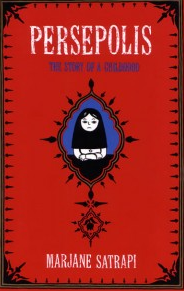Whether you’re planning a vegetable or rain garden, JKM Library has the resources you need!
Stop in to the First Floor and check out books on a variety of garden styles and the plants you’ll need.
Don’t have a green thumb but find inspiration in being outside? Check out either of Jamaica Kincaid’s books on how she finds peace and happiness in the natural world.
Commenting on blog posts requires an account.
Login is required to interact with this comment. Please and try again.
If you do not have an account, Register Now.
Get out and explore the city this summer with inspiration from one of the books displayed on the First Floor.
Whether you’re interested in art, architecture, or the culture of Pittsburgh, you’ll find a helpful guide to your summer adventures.
Dates to the biggest festivals and events around the city will be posted in the Lobby for your convenience.
Find something that peaked your interest? Make sure to ask a librarian about how you can find more books about the Steel City!
Commenting on blog posts requires an account.
Login is required to interact with this comment. Please and try again.
If you do not have an account, Register Now.
On March 16, 2015, Jennie King Mellon Library celebrated Freedom of Information Day, an annual observance of our rights to speak out, to share information freely, and to obtain information that the public has a right to know. See our display of related books and materials in the first floor lobby!
Libraries are information repositories, and are based upon the idea that information should be freely shared and experienced. Libraries and librarians are often on the front lines of First Amendment and information freedom concerns. A recent example is the controversy that occurred when, in 2013, the Chicago Public School System pulled Marjane Satrapi’s award-winning graphic novel Persepolis: The Story of a Childhood from their curriculum.
Persepolis
The banning of the work could not have happened without discussion amongst various administrators in the school system, much of which occurred in writing, and so the American Library Association’s Office for Intellectual Freedom, the Freedom to Read Foundation (FTRF), and the National Coalition Against Censorship (NCAC) all put in Freedom of Information Act requests for the correspondence in early 2013. FOIA allows for anyone to access, or to request and receive, any information held by the federal government (including public schools) that is not specifically required to be kept confidential. The professional organizations received only a few pages of documents, including a heavily-edited version of the email chain which began with a complaint about the book and ended with the determination that it would be banned.
Over a year later, in December 2014, Jarrett Dapier, a student of library science at the University of Illinois who was writing a paper on censorship in K-12 classrooms, submitted his own Freedom of Information Act (FOIA) request on the subject and received the complete email correspondence chain. The full correspondence received by Dapier reveals that the decision to pull the book from the curriculum was based on two pages in Persepolis identified as being “not appropriate” by one school principal. In a domino-effect panic, the book was thus ordered to be removed from curricula across the entire Chicago Public School System.
The correspondence also reveals that some teachers and librarians at the affected schools initiated “pushback,” by noting that the book is acclaimed, and that librarians retain the authority to purchase and make available to students even those texts that have been deemed controversial. Responding to the controversy, the Chicago Public School System ultimately allowed the work to remain in its libraries, and approved it for study in 11th and 12th grade classrooms. The story indicates how progressive causes can use information transparency to effect change, but also how imperfect the system can be. Information access is a right that needs to be exercised continually to be retained. March 16 is a better time than any to take advantage of this right! See http://www.foia.gov/ for more information.
Sources:
http://www.foia.gov/
http://americanlibrariesmagazine.org/blogs/the-scoop/persepolis-rising/
http://ncac.org/blog/how-chicago-public-schools-dumped-persepolis/
http://www.ftrf.org/blogpost/852091/161174/FTRF-files-FOIA-request-to-Chicago-Public-Schools-over-removal-of-Persepolis
http://www.ala.org/advocacy/advleg/federallegislation/govinfo/opengov/freedomofinfo





The summer reading list for first-year Chatham students has been posted! The contents of the list were chosen by your friendly neighborhood librarians, and include entries from different subject areas. There’s something on this list for everyone (and several things that I’ll be adding to my own summer reading list). Here’s a preview of some of the titles; make sure to access the complete list to see some other choices.
The Divide: American Injustice in the Age of the Wealth Gap Matt Taibbi
In the wake of the 2008 financial crisis and the Occupy movement, The Divide focuses on the myriad ways that wealth—or lack thereof—affects the rights afforded to US citizens (as well as the way this system impacts the immigration debate). Mass incarceration, stop-and-frisk, and the contemporary landscape of the US justice system provide evidence for Taibbi’s portrayal of a system that privileges wealth above all else.
Eating Together: Food, Friendship, and Inequality Alice P. Julier
What is the social impact of shared meals? Julier (director of the Master’s program in Food Studies here at Chatham) writes about the intersection of social eating experiences and social inequality, examining the literal and figurative aspects of who has a seat at the table.
The Fever: How Malaria Has Ruled Humankind for 500,000 Years Sonia Shah
The Fever addresses malaria as a subject with various historical, scientific, and socio-political resonances. Alongside anecdotal evidence of the way the disease is approached and conceived of in malaria-afflicted areas, Shah takes on the ineffectual attempts of various global organizations to curb its effects. The Fever offers a deeper understanding of the way malaria has shaped and continues to affect human history.
Citizen: An American Lyric Claudia Rankine
From microaggressions to overt racial violence, Citizen addresses life in “post-race” America. Rankine meditates on the ways that this constant narrative of otherness impacts daily life and, in some cases, even personal safety. Composed of prose poems, verse, essays, and images, Rankine’s work is a form-agnostic witness account of
contemporary race and racism in America.
The Signal and the Noise: Why So Many Predictions Fail—But Some Don’t Nate Silver
Silver takes on the art and science of forecasting, analyzing the various reasons—from a mastery of statistics to a healthy understanding of uncertainty—why some predictions are successful while others are not. The Signal and the Noise investigates forecasting from multiple vantage points, using examples of correct and incorrect predictions from sports, politics, economics, and more.
Source: Music of the Avant-garde, 1966-1973 Edited by Larry Austin and Douglas Kahn
This volume reproduces issues of the avant-garde periodical Source, which published a variety of experimental music bits and pieces. Introductory material provides some historical context, followed by the downright weirdness of the content itself, with pieces from John Cage, Morton Feldman,
Steve Reich, Nam June Paik, Harry Partch, and others.
The Paris of Appalachia: Pittsburgh in the Twenty-First Century Brian O’Neill
An affectionate tribute to Pittsburgh that also deals some tough love in response to some of the city’s ongoing problems. O’Neill includes the stories of Pittsburgh natives in his analysis, attempting to capture the character of a city situated somewhere between the East Coast and the Midwest both in terms of physical location and regional character.
Commenting on blog posts requires an account.
Login is required to interact with this comment. Please and try again.
If you do not have an account, Register Now.